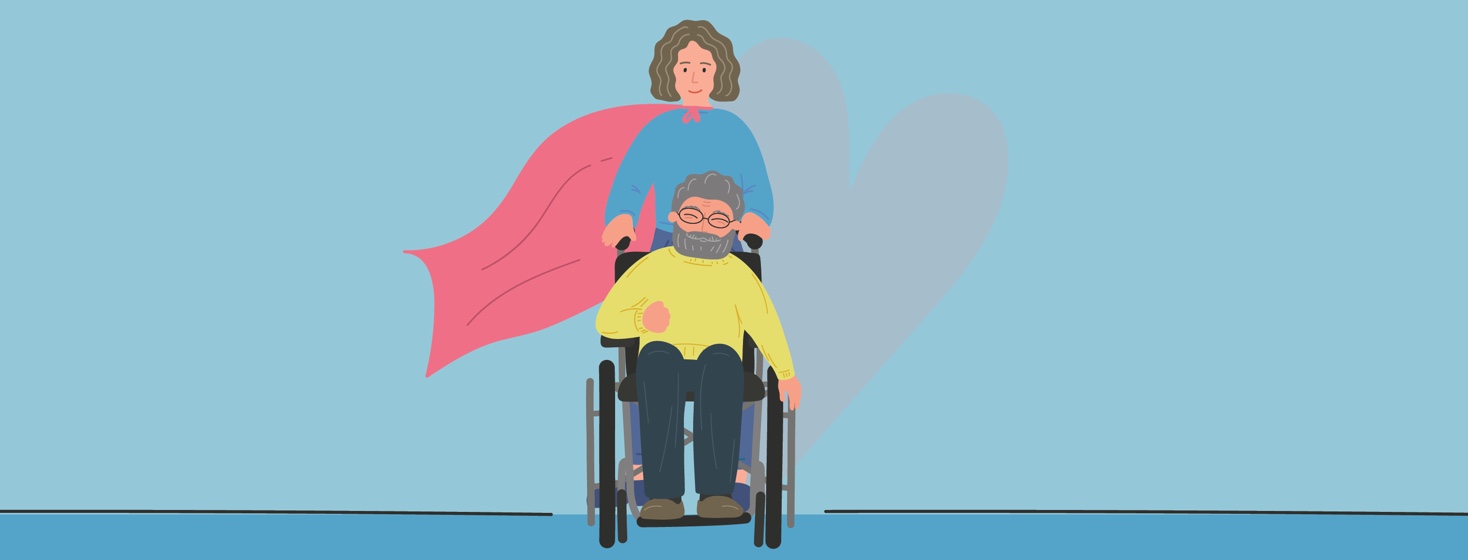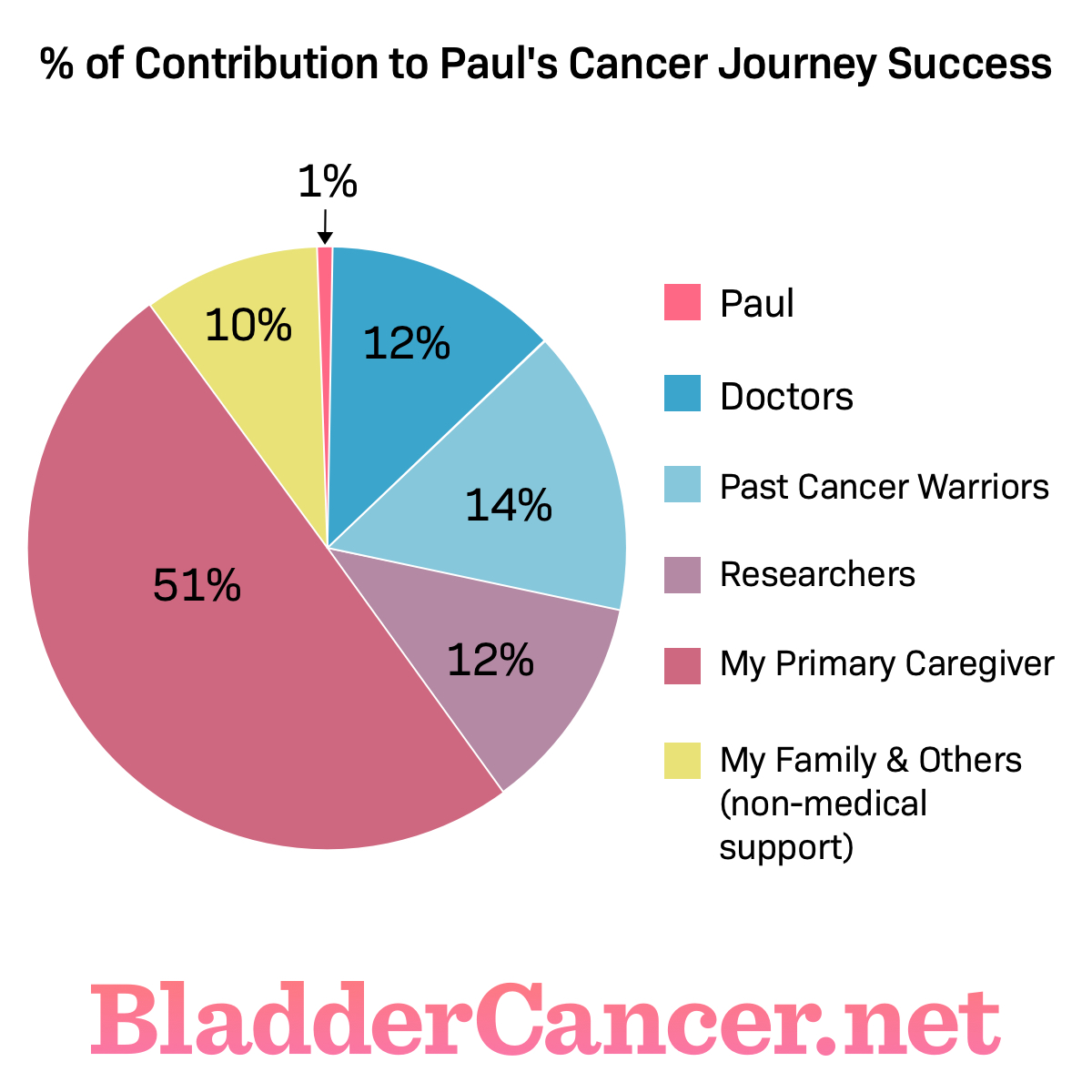The True Hero on Your Cancer Journey
If you tell someone you’re a cancer survivor, they pat your back and say “good show!” Or they’ll congratulate you on your effort and perseverance. Some might say you’re a hero for facing that terrible disease.
But we all know we didn’t beat cancer ourselves. There is an army of people who have contributed to your outcome.
Don’t get me wrong. We suffered.
We deserve some of the credit
We put up with a bunch of inconveniences and scares. We had pain and we’ve had changes in life and lifestyle. We deserve some of the credit. But when I do a pie chart of where the credit belongs for me still being here to bore you with my musings on this site, it looks more like this:
- Me - I did little except not give up. And while not easy… it’s innate and core to being human. I take very little credit.
- My doctors were exemplary. They were kind, they were educated, they were focused, and they were skilled. I am enjoying the life I have today after some big surgery because of them and I am extremely thankful.
- Past cancer warriors who had to go through what I’ve been through without the outcome I enjoy provided the information needed for our knowledge of how to treat cancer to get better and more targeted. As they say – they were first through the wall and their experiences give me better outcomes. Without their courage and sacrifice, I (you) wouldn’t be here.
- Researchers who do the hard work behind the scenes cranking out the data, the statistics and the information doctors use to create new options, new treatments and hopefully, new cures. Along with the doctors, they account for a quarter of the reason I’m here.
- My primary caregiver – The Lion’s Share. 51% of my success goes to my caregiver. In my case, it is my wife of 33 years (Would have been only 27 if this cancer thing had gone sideways.)
- Family and friends - Always a huge help. Truthfully, the best help from family and friends is to help the primary caregiver.
I wrote about it on my own blog way back then but summarizing some of those thoughts…
The real suffering
I didn’t look very concerned during the first part of my journey. But I was freaking out. I like to say I was “child-scared” where the fear is totally disconnected from reality. Pure fear. Scared that everything in my life for the next minutes, hours, weeks, and months was completely and totally out of my control.
But my wife was with me the entire time. From the start to finish.
Her commitment struck me most when I went in for surgery. She was with me, and not just spiritually, mentally, in thought and/or in prayer. She was there, in that moment, going into the surgery that would ultimately decide how I would (WE would) live the rest of our lives.
I feel more for those in the waiting room
Most people are concerned about the person going under the knife. But now I know better. I feel more for those in the waiting room. I know that is where the true suffering lives.
I know you’re thinking “Huh?”
Let me explain. My surgery lasted 10 hours. The 10 hours I was in surgery I remember exactly ZERO of it. I have no memory. I was in timelessness. Nothing touched me. I went to sleep. I woke up. It was over.
My wife, on the other hand, was in infinity.
She had to experience each minute
She had to experience the entire 10 hours of my surgery, minute by minute, hour by hour. There was no – “count backward from 100 and you’re be out” for her. She was awake for the entire procedure. Imagine the waiting? Luckily for us, the hospital had someone come down and talk to her each and every hour about my progress. A friend of ours came and sat with her for a while. She mentioned to me later that there was blood on the shoes of the doctor who came down to say everything was going well. I hope my wife didn’t see that.
I am sorry she had to go through it. It was a harder task than mine.
And it doesn’t end
The recuperation from this kind of surgery isn’t easy. There is a lot of “maintenance” – from giving injections, checking tubes and cleaning them. Reattaching urine bags and emptying them. Listening to complaints about being uncomfortable and how badly the catheter rubs. (You guys know what I’m saying…amiright?)
But I still think of that time during and after my surgery as when I really understood what the primary caregiver really gives.
They give you their all
They give you their time, their compassion, their strength. And you need it. Thank your caregiver. Whether a wife, spouse, partner, friend, they are 51% of your recovery.
The real hero on your cancer journey will be the first face you will see when you wake up with your new diversion and your new normal. They were the part of your past normal and now a part of your future normal.
Thank them as much as you can
I will live a long time trying to return that bit of timelessness my wife gave me while she experienced infinity in the waiting room.
It will be my #1 on my bucket list (now that I know I have more time to finish it!)


Join the conversation